Events
Calendar of Events
|
Monday
|
Tuesday
|
Wednesday
|
Thursday
|
Friday
|
Saturday
|
Sunday
|
|---|---|---|---|---|---|---|
3 events,Instructor: Dr. Joey Shaw (UT-Chattanooga) *Note course runs Sunday-Thursday* During this course, students will obtain a comprehensive understanding of how biological collections are made in the field and eventually uploaded to national and international data portals, like iDigBio or GBIF. We will help you to download and install important helpful apps and teach you how to use them in series to go from field to data portal. Students will leave the course having collected Plantae specimens, made labels, mounted specimens, and uploaded digital data to global portals. In addition to teaching and focusing on these skills, I can also help you key out and identify plant species that you might encounter and want to collect in the field, although you should have some cursory skills. Pre-requisites: This course is designed for young professionals who will be making biological collections of plants or fungi (professors, conservation workers, graduate students, undergraduate students, and naturalists), although it is open to others with an interest in this subject. No previous experience is required. Depending on the different field trips, participants should be prepared to put in at least a couple of 12-hour days. It would be great if you have had at least a class in Field Botany, Plant Taxonomy, Local Flora, or similar, but that is not necessary either. Course Outcome: Leave having collected and digitized Plantae specimens, including labels, transcribed text data & images. For more information, visit https://highlandsbiological.org/summer-2023-academic-courses/. Instructor: Dr. JJ Apodaca (Tangled Bank Conservation) The field of conservation genetics is rapidly emerging as an exceedingly vital component of conservation biology. This course focuses on salamanders to explore the fundamentals, cutting edge techniques, theories, and issues surrounding conservation genetics. Salamanders are one of the most endangered vertebrate groups in the world and are extremely diverse in the southern Appalachians, making them an ideal focal group for an introduction to the world of conservation genetics. In this short course, participants will become familiar with how to design, carry out, and interpret a conservation genetic study. We will also focus on learning to identify, work with, and appreciate the local salamander diversity. Participants will become acquainted with commonly used laboratory techniques and current literature pertaining to the conservation genetics of salamanders. This course is designed for students and others interested in working in the field of wildlife management that want to learn more about conservation genetics. Pre-requisites: Introductory biology, ecology, or permission of instructor. For more information, visit https://highlandsbiological.org/summer-2023-academic-courses/.
-
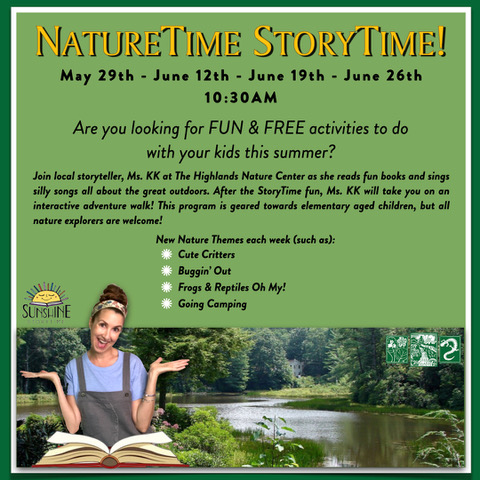
June 26 at 10:30 AM Highlands Nature Center FREE | No registration necessary Join local storyteller Ms. KK at the Highlands Nature Center as she reads fun books and sings silly songs all about the great outdoors. After the StoryTime fun, Ms. KK will take you on an interactive adventure walk! This program is geared towards elementary-aged children, but all nature explorers are welcome. New Nature Themes each week (such as): Cute Critters, Buggin’ Out, Frogs & Reptiles Oh My!, Going Camping, and More! About Ms. KK: A beloved storyteller, Ms. KK always puts her heart, energy, and infectious personality into every performance. Her enthusiasm and overall love of books is contagious. Ms. KK believes that when you open a book it opens up a world with endless possibilities. Whether she is performing virtually or in person, Ms. KK will make sure everyone has fun! Honestly, if I can make a child smile it makes my whole heart shine. Ms. KK taps into her former acting, improv, and voice-over skills as well as my years as a storyteller on YouTube and in Public libraries, to make every performance full of fun and joy!
Free
|
3 events,
-
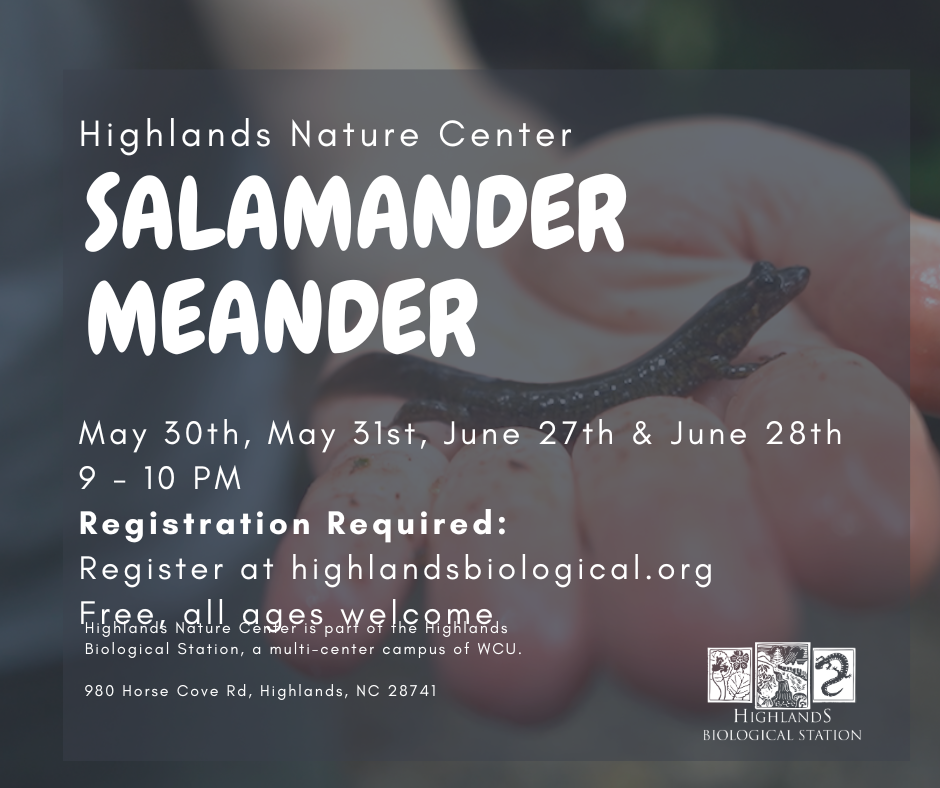
June 27th (Register HERE) 9 - 10 PM FREE, all ages welcome Registration required Search for salamanders in the Botanical Garden! Discover strange and fascinating facts about our slimy amphibian friends, then join naturalists on a walk through the gardens to find local species. Please bring a flashlight for this adventure! This program is weather-dependent.
Free
|
3 events,
-
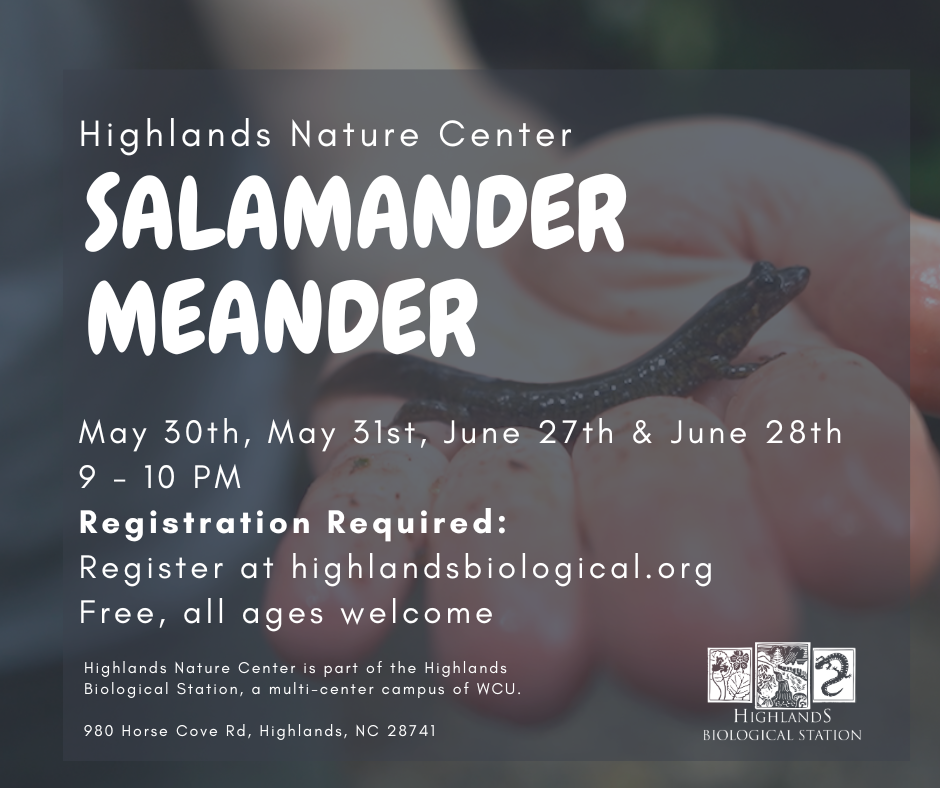
June 28th (Register HERE) 9 - 10 PM FREE, all ages welcome Registration required Search for salamanders in the Botanical Garden! Discover strange and fascinating facts about our slimy amphibian friends, then join naturalists on a walk through the gardens to find local species. Please bring a flashlight for this adventure! This program is weather-dependent.
Free
|
3 events,
-
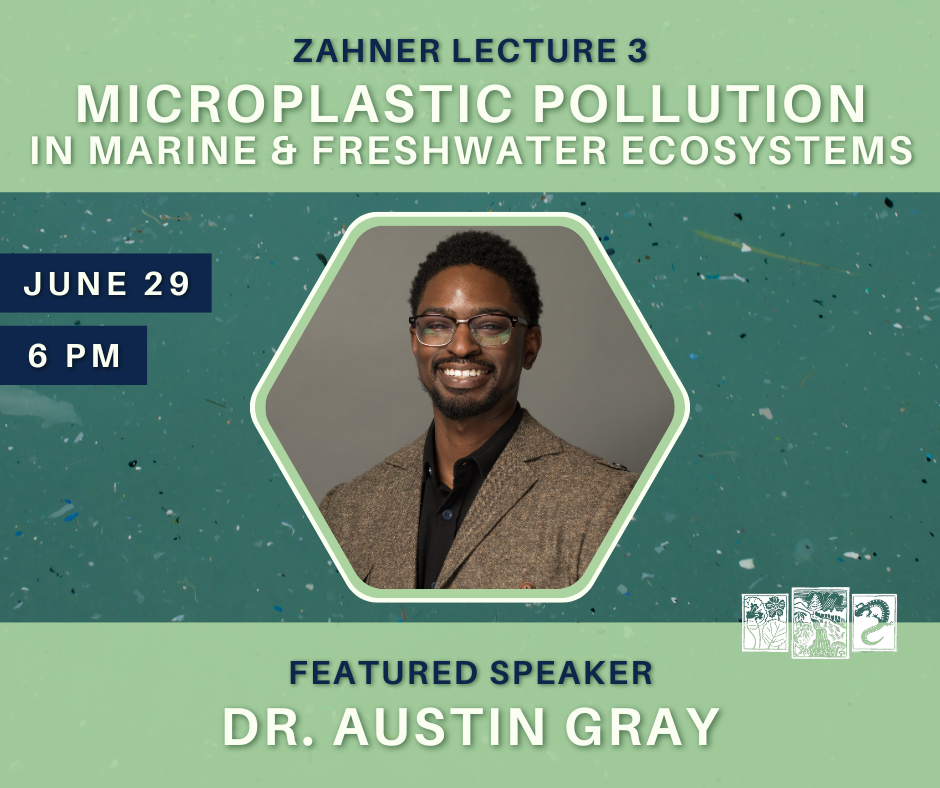
Lecture 3 - Microplastic Pollution in Marine and Freshwater Ecosystems Featured Speaker: Austin D. Gray, Ph.D.; Assistant Professor of Biological Sciences; Virginia Tech Date: Thursday, June 29th Time: 6pm – 7pm Cost: FREE Sponsored by Jennifer & Forrest McConnell and Jennie Stowers. Plastic pollution poses one of the greatest global risks to freshwater and marine ecosystems. The formation of microplastics from plastic debris has been shown to alter aquatic ecosystems by disrupting biota populations. In this talk, topics surrounding plastic pollution, microplastic occurrence and distribution, toxicological impacts of microplastics, toxicokinetic aspects of microplastic uptake and depuration, and microplastic formation rates in marine and freshwater habitats will be discussed.
Free
|
1 event, |
0 events,
|
0 events,
|
|
0 events,
|
0 events,
|
1 event,
-
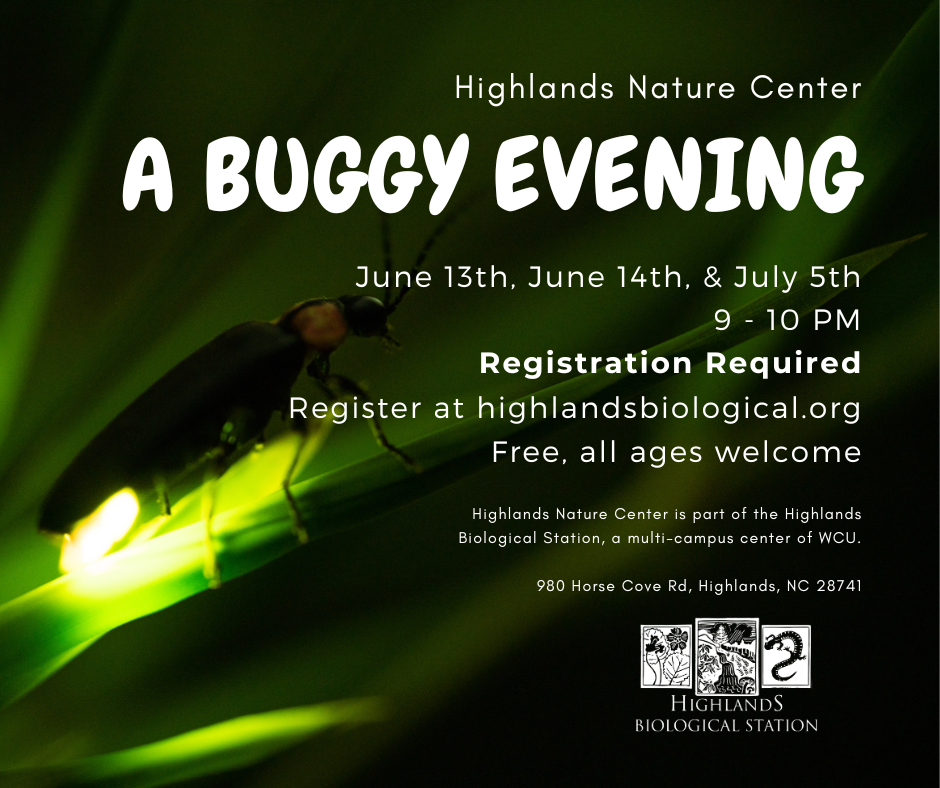
July 5th (Register HERE) 9 - 10 PM FREE, all ages welcome Registration required Experience the world of our smallest nocturnal creatures—insects! Learn to identify unique and beautiful insects then join naturalists to look for fireflies and nocturnal creepy crawlies in the Botanical Garden. Please bring a flashlight for this adventure! This program is weather-dependent.
Free
|
1 event,
-
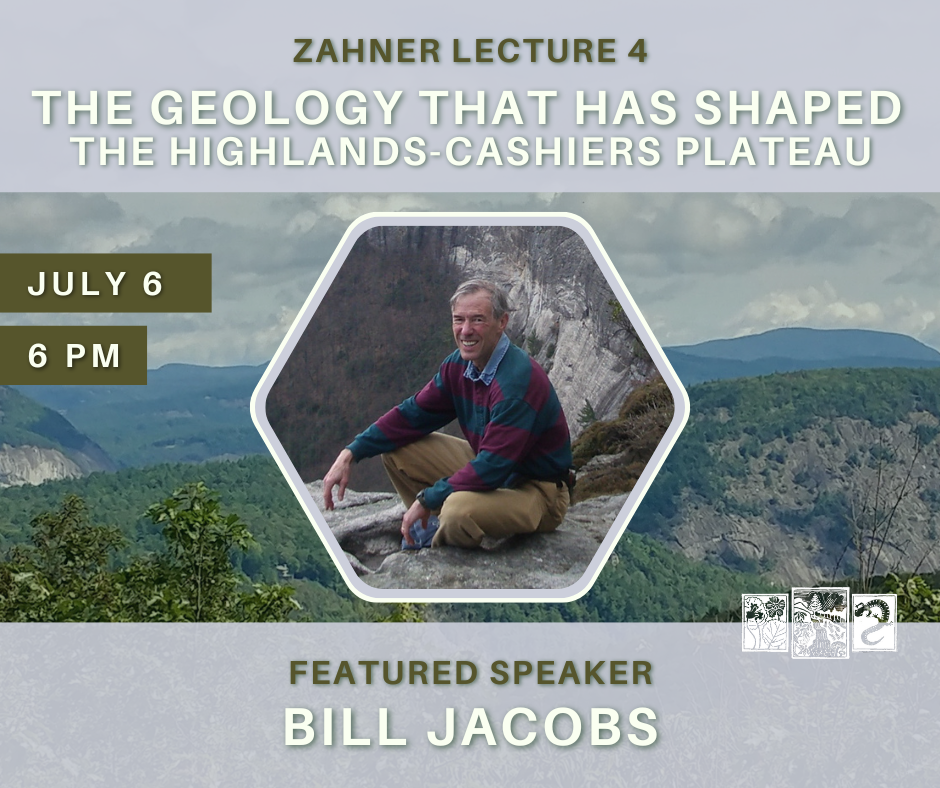
Lecture 4 - The Geology That Has Shaped the Highlands-Cashiers Plateau Featured Speaker: Bill Jacobs, Geology Enthusiast and Author of Whence These Special Places – The Geology of Cashiers, Highlands & Panthertown Valley Date: Thursday, July 6th Time: 6pm – 7pm Cost: FREE Sponsored by Anne & Dick Goodsell: The Claude Sullivan Geology Initiative The Highlands-Cashiers Plateau is a unique landscape, with high valleys, an extraordinary array of waterfalls and mountains, and rich biodiversity. In this lecture, we will explore the geologic processes, stretching back over 500 million years, that have created the Plateau and shaped today’s special landscape. Our speaker will use concepts and language comfortable for the non-scientist and will discuss how geology, some of it ancient and some much more recent, has determined the character and appearance of both the broader Plateau and many of its specific mountains and waterfalls.
Free
|
0 events,
|
0 events,
|
0 events,
|
1 event,Instructor: Dr. Bob Youker (Western Carolina University) In this lecture/lab course, students will learn how to prepare their field samples for brightfield and fluorescence microscopic examination. Students will also learn how microscopes generate images, the experimental conditions needed for optimal imaging of their specimens, and learn basic image processing techniques for analysis. The course will be a combination of lecture and hands on specimen preparation and imaging (lab). Students can either provide specimens from their field research, or work with the instructor to collect rotifers and other aquatic micro-invertebrates from the field to use in the lab portion. Lab time will be centered on learning the parts and functions of modern brightfield and fluorescence (widefield & confocal) microscopes, preparing specimens (e.g., staining with fluorescent dyes), and acquiring images of their specimens for analysis. Students will learn to acquire images using a widefield fluorescence microscope and take a “field trip” to WCU to use the state-of-the-art Leica Stellaris 5 confocal microscope. We will also discuss some other modern approaches to fluorescence microscopy, such as electron and super-resolution microscopies. Each student will prepare a final report that compares brightfield to fluorescence images taken of their samples. The student will explain in detail the features observed using both methodologies and the advantages and disadvantages of each method. The student will also give a short oral presentation on one microscopic technique not covered in the course and this topic will be selected from a list provided by the instructor. Pre-requisites: Introductory biology sequence For more information, visit https://highlandsbiological.org/summer-2023-academic-courses/. |
2 events,
-
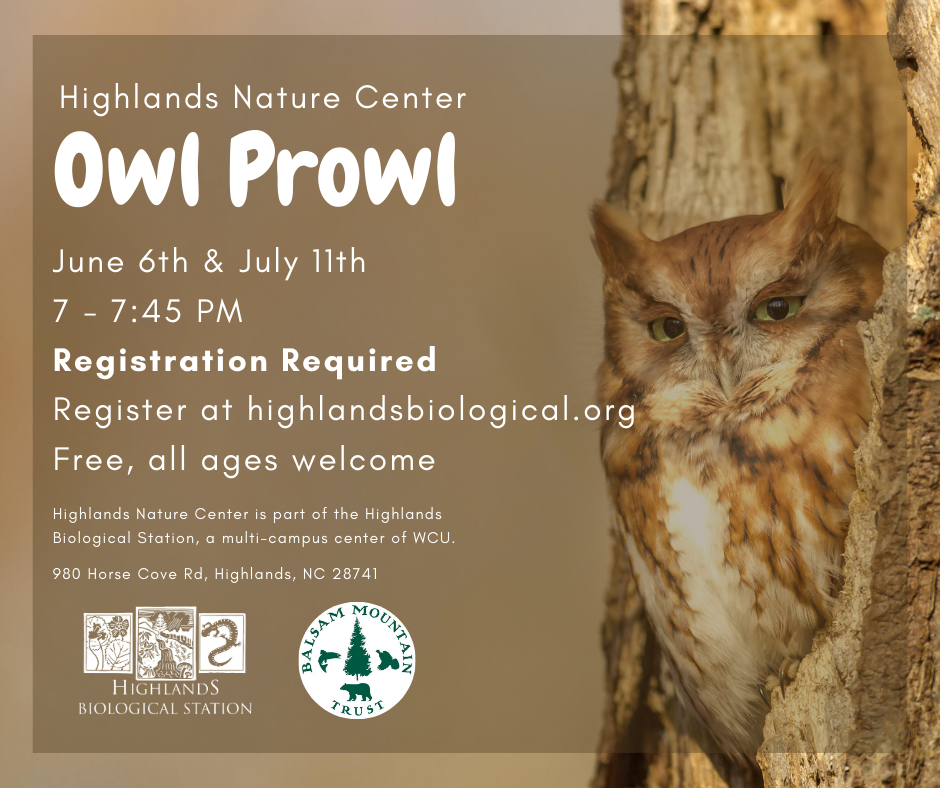
July 11th (Register HERE) Time: 7pm – 7:45pm FREE, all ages welcome Registration required Who-oo goes there? Join Balsam Mountain Trust for a special meeting with their live owl ambassadors and learn more about these amazing nocturnal raptors. Please bring a flashlight for this adventure! This program is weather-dependent.
Free
|
2 events,
-
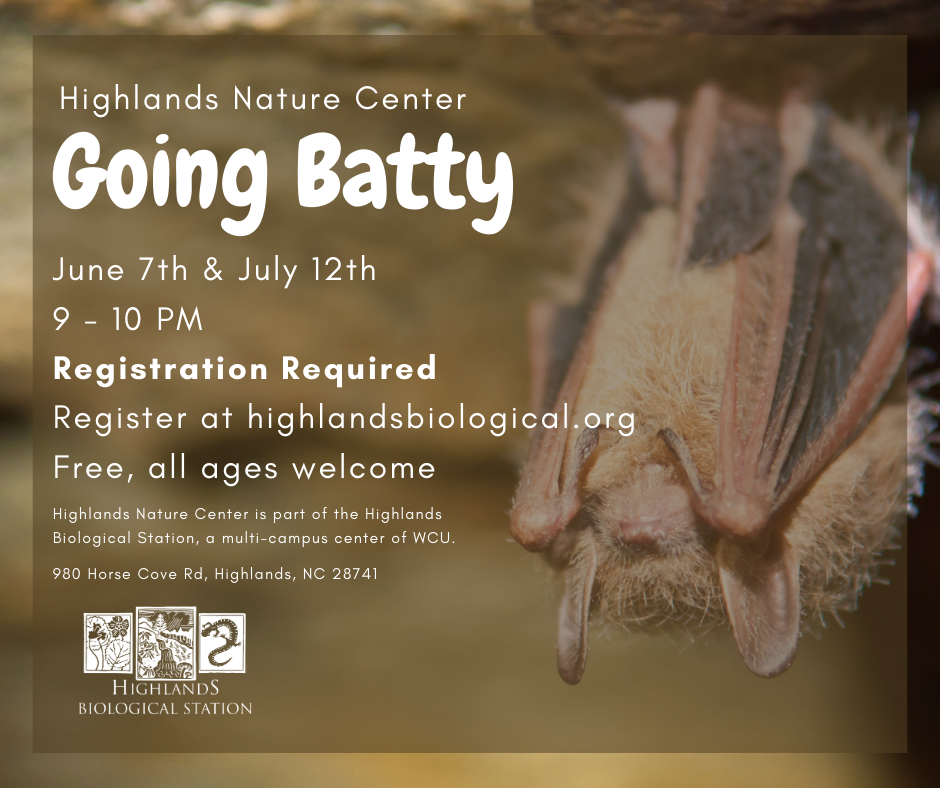
July 12th (Register HERE) Time: 9pm-10pm FREE, all ages welcome Discover the nocturnal mammals who take to the skies! Learn about the fascinating world of bats, then join naturalists in the Botanical Garden to seek them out. Please bring a flashlight for this adventure! This program is weather-dependent.
Free
|
2 events,
-
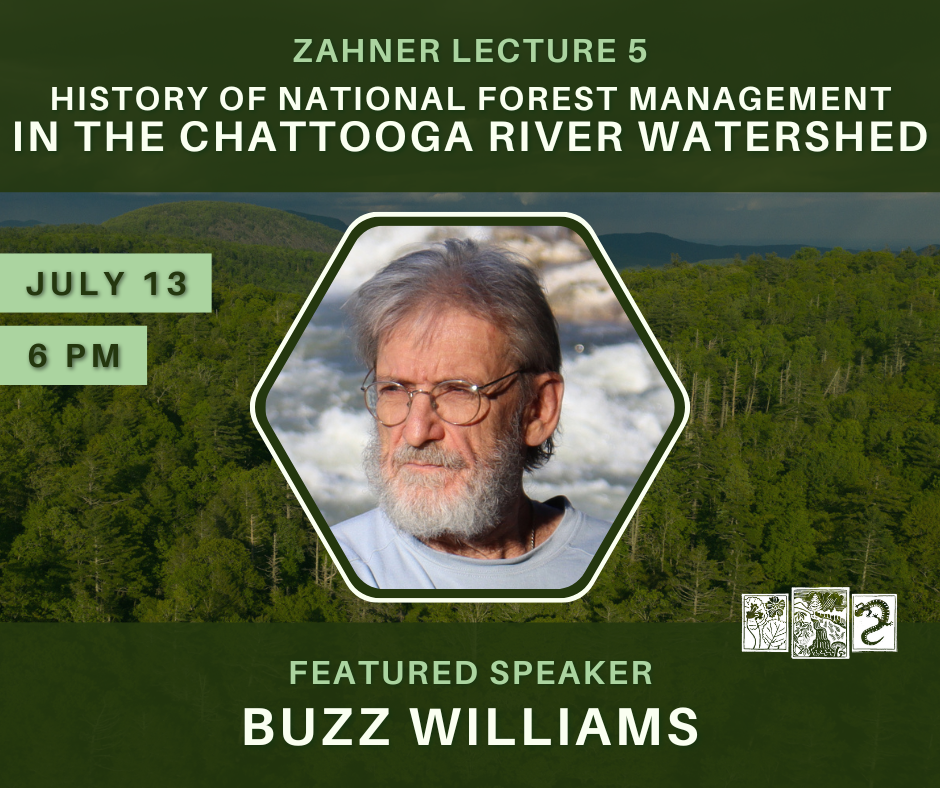
Lecture 5 - History of National Forest Management in the Chattooga River Watershed, and the Compelling Case for a New Mission for the Forest Service Featured Speaker: Buzz Williams; Emeritus Executive Director & Program Specialist, Chattooga Conservancy Date: Thursday, July 13th Time: 6pm – 7pm Cost: FREE Sponsored by Bryding Adams & Bob Rathburn, Lynda Anderson & Ken Conover, Margie Bauer & Jim Parker, Janet & Scott Clarke, Leslie & Jim Costa, Diane Lennox & Paul Manos, Helen & Russ Regnery, and Dollie Swanson. National forest lands in the Highlands-Cashiers Plateau encompass a very sensitive and ecologically rich landscape. These forests are critical for recreation, preserving biological diversity, protecting drinking water supplies, producing clean air—and now, for fighting climate change. These forests are managed by the Forest Service under the US Department of Agriculture and are subjected to intensive logging and cultivation as tree crops. Recently, the Forest Service decided to cut down rare old-growth trees and increase the amount of logging on public lands in western NC. Scientific research indicates that logging on federal forests is a substantial source of carbon dioxide emissions into the atmosphere. Recent studies also found that one of the best ways to mitigate the effects of climate change is by restoring and protecting mature and old-growth forest ecosystems, which store large amounts of carbon. This talk will provide an overview of national forest management in the Chattooga River watershed, and why mitigating the effects of climate change requires a new mission for the Forest Service—one that prioritizes protecting and restoring a network of mature and old-growth forest ecosystems, to ensure biological diversity and management aimed at fighting climate change.
Free
|
0 events,
|
0 events,
|
|
2 events,Instructors: Dr. Steph Jeffries (NC State Univesity), Dr. Alan Weakley (UNC-Chapel Hill), and Dr. Julie Tuttle (UNC-Chapel Hill) Check back later for a description and pre-requisites. For more information, visit https://highlandsbiological.org/summer-2023-academic-courses/. Instructors: Alan and Arleen Bessette Due to this workshop’s popularity, priority will be given to those who haven’t taken the workshop before. This workshop will focus on the mycological diversity of North & South Carolina, and the Southern Appalachian Region. Activities will consist of lectures/presentations on topics such as (but not limited to): Identification Techniques, Major Groups of Fungi, Ecology, Edibility & Toxicity; daily field work (forays); and laboratory/class activities where participants will be introduced to the use of field keys, microscopy, documentary photographic techniques, and more. Designed for beginners wanting a solid introduction to mycology, and for more advanced individuals wishing to pursue their personal mycological interests, this workshop facilitates learning in a relaxed group setting in a unique and mycologically rich area. Cost: $500 workshop fee + $300 housing fee (strongly encouraged) For more information, visit https://highlandsbiological.org/summer-workshops/. |
3 events,
-
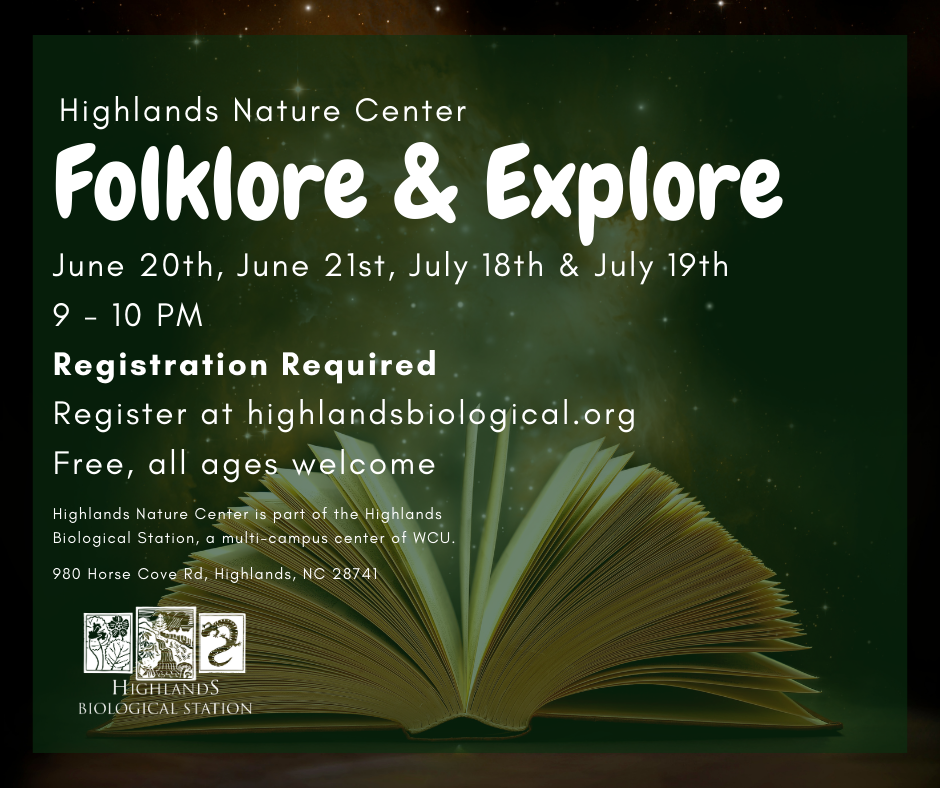
July 18th (Register HERE) 9 - 10 PM FREE, all ages welcome Registration required Curious about old wives’ tales, superstitions, & Sasquatch? Explore the natural, night-time beauty of the Botanical Garden while unearthing fascinating tales of Appalachian lore. Please bring a flashlight for this adventure! This program is weather-dependent.
Free
|
3 events,
-

July 19th (Register HERE) 9 - 10 PM FREE, all ages welcome Registration required Curious about old wives’ tales, superstitions, & Sasquatch? Explore the natural, night-time beauty of the Botanical Garden while unearthing fascinating tales of Appalachian lore. Please bring a flashlight for this adventure! This program is weather-dependent.
Free
|
3 events,
-
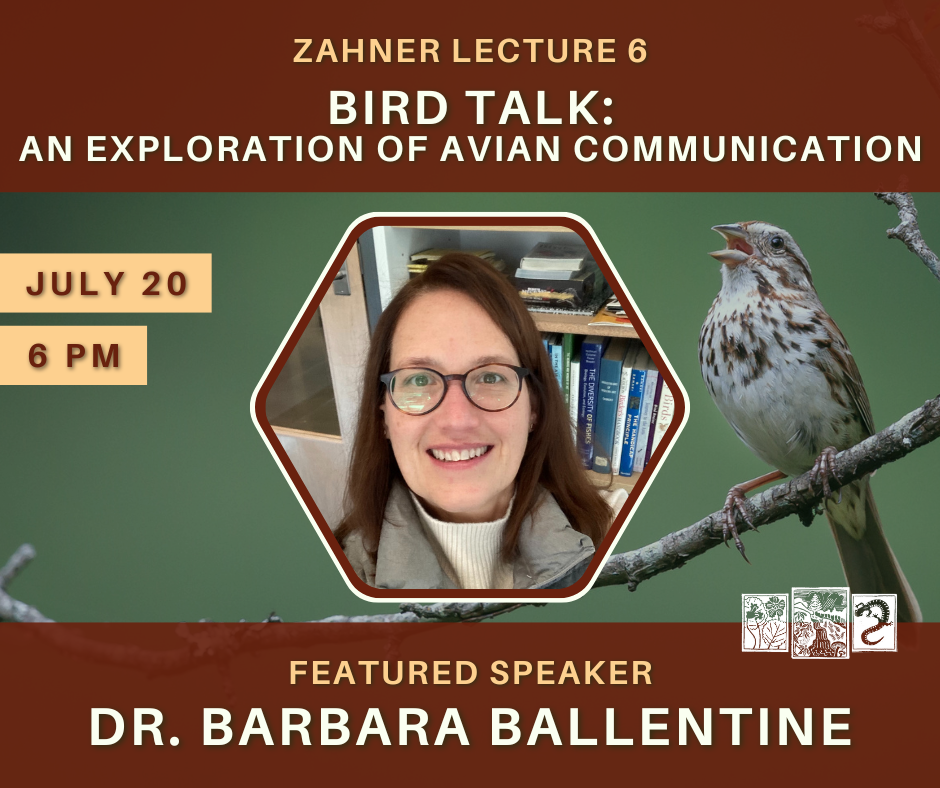
Lecture 6 - Bird Talk: An Exploration of Avian Communication Featured Speaker: Barbara Ballentine, Ph.D.; Associate Professor; Western Carolina University Date: Thursday, July 20th Time: 6pm – 7pm Cost: FREE Sponsored by Miriam & Vernon Skiles and Mary Todd & Jimmy Davis. Birds use acoustic, visual, and even olfactory signals in social contexts that are important for successful reproduction and survival. Signaling works because it offers advantages to both the sender and receiver. Understanding how signals are used by birds to communicate provides insight into the amazing lives of birds.
Free
|
|||
2 events,
-
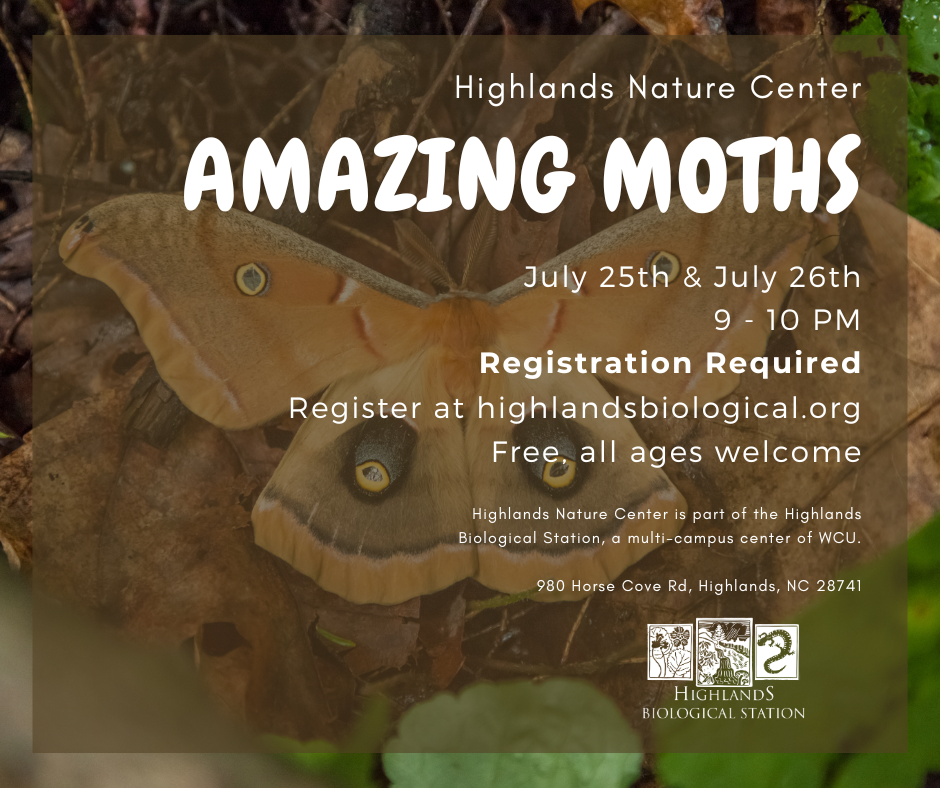
July 25th (Register HERE) 9-10 PM FREE, all ages welcome Registration required Celebrate National Moth Week with us! Learn about the many kinds of moths that call our area home, then join naturalists to see which ones we can find in the Botanical Garden. Please bring a flashlight for this adventure! This program is weather-dependent.
Free
|
2 events,
-

July 26th (Register HERE) 9-10 PM FREE, all ages welcome Registration required Celebrate National Moth Week with us! Learn about the many kinds of moths that call our area home, then join naturalists to see which ones we can find in the Botanical Garden. Please bring a flashlight for this adventure! This program is weather-dependent.
Free
|
2 events,
-
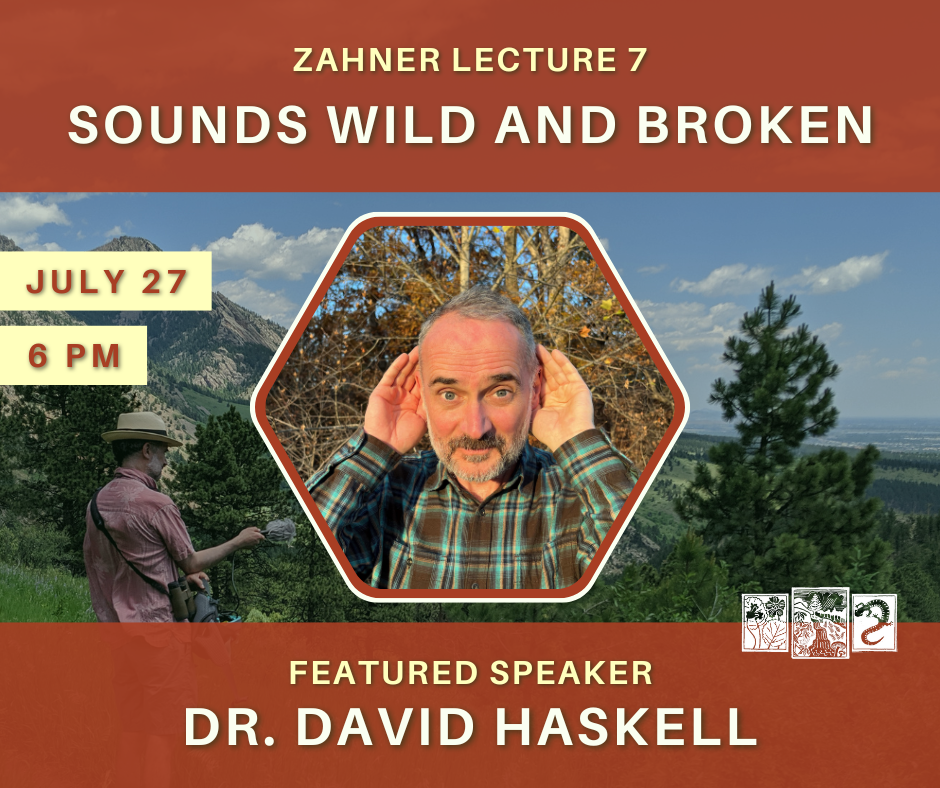
Lecture 7 - Sounds Wild and Broken Featured Speaker: David George Haskell, Ph.D.; Author and William R. Kenan Jr. Professor; University of the South Date: Thursday, July 27th Time: 6pm – 7pm Cost: FREE Sponsored by Rosemary & Bill Stiefel. Sonic communication was a late-comer to the evolution of life on Earth. But once song got started, the links that it forged became powerful generative forces. Today, the diverse sounds around us – from chirping crickets, to birdsong, to the human music in our earbuds – reveal the many layers of this evolutionary and cultural creativity. Yet sonic diversity is also threatened worldwide. Using examples from his own explorations of sound, Haskell will show how attention to the sensory richness of the world, especially its sonic dimensions, can root and guide exploration, ethics, and action.
Free
|
0 events,
|
0 events,
|
||
1 event,Instructor: Dr. Andy Methven (Eastern Illinois University, Emeritus) Students will be introduced to the fleshy fungi (Ascomycetes and Basidiomycetes) that occur on the Highlands Plateau. Emphasis will be placed on the analysis of macro- and micro-morphological features in the identification of genera and species as well as the ecological role of fungi in the ecosystem. Additional topics may be added depending on student interest. The daily routine will consist of a morning lecture followed by a field trip until early afternoon. Collections will be examined and identified after returning from the field and an opportunity provided to assemble a collection of dried fleshy fungi. Microscopes and chemical reagents necessary for accurate species determinations will be available for use. The laboratory will be open in the evenings for additional study of collections. Pre-requisites: Introductory biology, ecology, or permission of instructor For more information, visit https://highlandsbiological.org/summer-2023-academic-courses/. |
2 events,
-
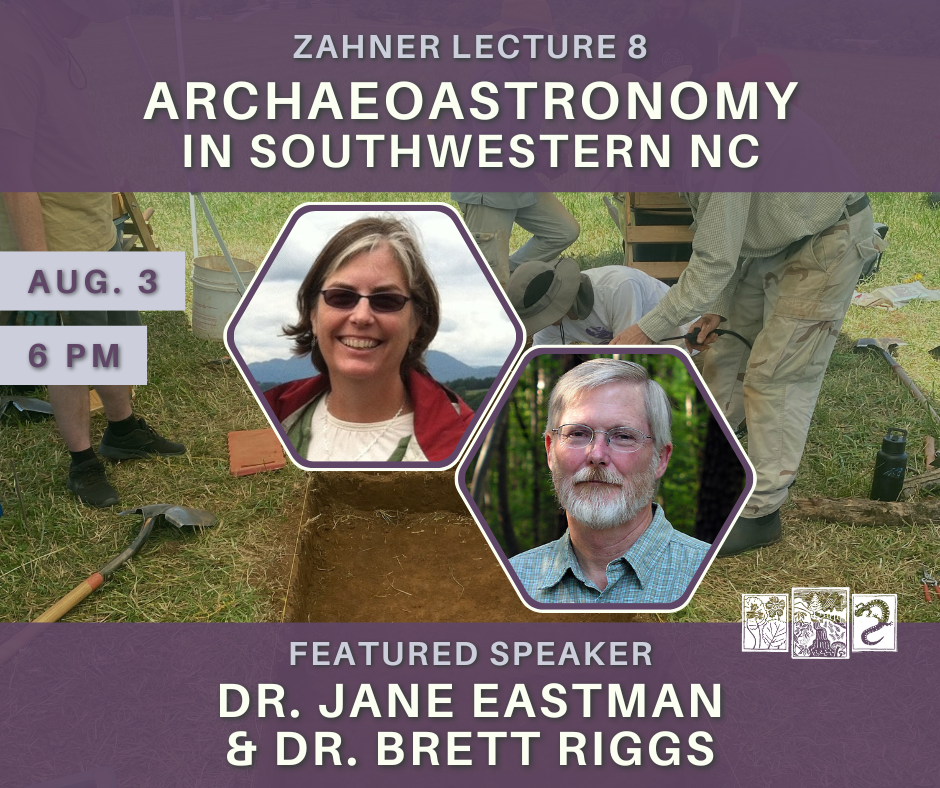
Lecture 8 - Archaeoastronomy in Southwestern North Carolina Featured Speakers: Jane M. Eastman, Ph.D.; Associate Professor; Anthropology and Sociology Department; Western Carolina University & Brett Riggs, Ph.D.; Sequoyah Distinguished Professor of Cherokee Studies; Western Carolina University Date: Thursday, August 3rd Time: 6pm – 7pm Cost: FREE Sponsored by Suzanne & Don Duggan, Julie Farrow, Florence & Tom Holmes, Ruthie & Franko Oliver, Adele & Nick Scielzo, and Margaret Waters. In ancient Cherokee perspective, the matters of this world, the Above World and the Beneath World intertwine, and Cherokee peoples constructed ritual landscapes to engage the beings and forces of these realms. Recent investigations in the Little Tennessee River Valley have revealed one such landscape that marks astronomical phenomena and bespeaks sophisticated systems for measuring calendrical time and the cycles central to Cherokee life. These patterns indicate complex observational sciences that guided functions of indigenous societies long before European contact.
Free
|

Recent Comments